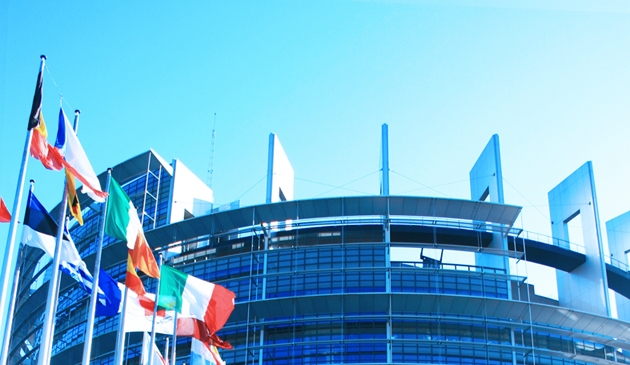
Why free markets have little to do with inequality
Many Europeans believe liberal economic reforms are incompatible with social justice. The US and the UK, they point out, have more liberal markets for products and labour than in continental Europe - but also higher levels of poverty and income inequality. European countries therefore face a choice. They can either free their product and labour markets and accept the downsides or they can protect social solidarity by resisting Anglo-American neo-liberalism.
But the belief that market liberalisation increases social inequalities is not borne out by the evidence. The UK certainly has higher levels of poverty and inequality than France or Germany. But pointing this out is just selective use of evidence to support a predetermined conclusion. If there were a strong correlation between levels of market liberalisation and social outcomes, one would expect to see the pattern replicated across the European Union - not just in a carefully selected group of countries.
Is such a pattern discernible? No. The nation with the lowest levels of poverty and income inequality in the EU, as well as the lowest rate of long-term unemployment, is Denmark - a country with competitive product markets and some of the least restrictive labour laws. Countries with the worst social outcomes (Greece, Italy and Portugal) all have restrictive product and labour market laws. Liberalisation, it seems, no more threatens social justice than regulation guarantees it.
So what explains these differences in social outcomes? The answer, one might think, must be differences in spending by governments. Social spending is certainly high in egalitarian countries such as the Nordics. But it is just as high in France, where social inequalities are more marked. Likewise, it is as high in the supposedly heartless UK as it is in the egalitarian Netherlands. Contrary to popular belief, the UK is not governed by a callous minimal state.
The reason the Nordics and the Dutch have the most egalitarian outcomes is that they provide the best education. The correlation between educational and social outcomes across the EU is striking. People with low levels of attainment at secondary education are most exposed to the risk of poverty. Moreover, the more educated people are, the more likely they are to be in work: the employment rate for Europeans with tertiary education is 80 per cent, whereas it is just 50 per cent for those who fail to complete their secondary education.
What makes Nordic education systems special? Partly, it is quality: 15-year-olds in northern Europe have higher literacy and numeracy levels than those in southern Europe. But the length of schooling is equally important. In Denmark, Finland and Sweden, 90 per cent of 25- to 34-year-olds have completed upper secondary education - and 40 per cent have gone on to obtain tertiary qualifications. In Portugal, the respective figures are 43 per cent and 19 per cent, while in Greece they are 57 per cent and 25 per cent.
How about the UK? Public spending on education is just under 6 per cent of gross domestic product - around the EU average. The results are mixed. Studies by the Organisation for Economic Co-operation and Development show that levels of literacy and numeracy among 15-year-olds are about the same as in Germany (and higher than in France). Many international studies, moreover, rank British universities as the best in Europe. So what is the problem? The answer is that one in four children leave school before completing upper secondary education - a much higher share than the EU average.
In short, inequality in the UK seems to have more to do with high drop-out rates from upper secondary education than with the country's privatised rail system, liberal labour laws or levels of social transfers. If this analysis is correct, it suggests that the British government faces an uphill task trying to reduce inequalities through the tax and benefits system. It also suggests that countries in which drop-out rates are high are the most exposed to increases in income inequality resulting from globalisation and technological change.
Education has long been an important determinant of countries' wealth. As China and India become more integrated in the world economy and the international division of labour proceeds apace, it is also having an increasingly important influence on social cohesion. The European countries most at risk of rising social inequalities are those with underperforming education systems.
